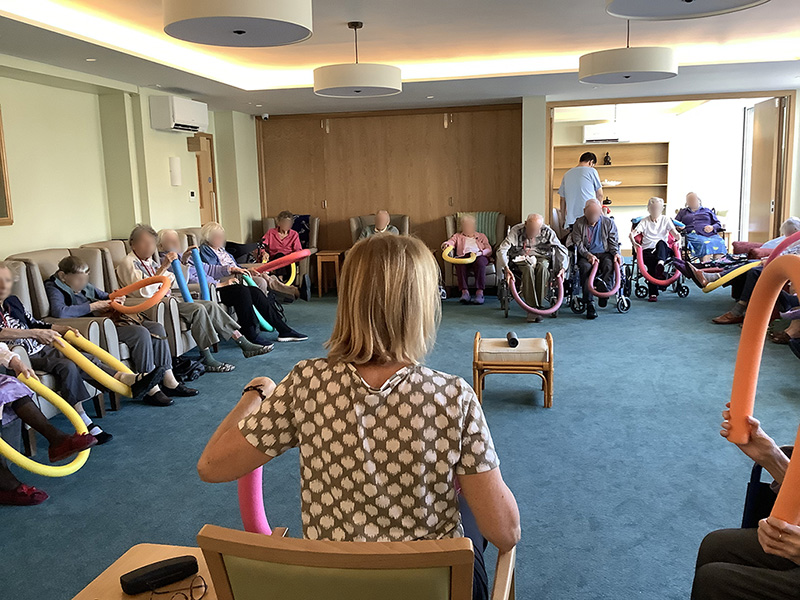Tips for Helping a Loved One Who is Suffering from Dementia
Dementia is a significant issue in the UK, affecting nearly one million people. This debilitating condition impacts primarily older adults, taking a toll on friends, families, and carers.
Here Baxendale Care Home, a dementia care home in North London, explore the impacts of the condition, offer guidance on supporting those with dementia, and why choosing our care services could be the best solution for your family if you live in our local area.
What is Dementia?
Dementia is defined as a combination of issues associated with a decline in the brain’s functionality, and there are several symptoms. They can include memory loss, a decline in thinking speed and physical movement, along with language problems. This makes socialising particularly strenuous for sufferers, who may also experience visual and audio hallucinations.
Alzheimer’s Disease is a form of dementia, which, together with vascular dementia, makes up the majority of cases in the UK. Vascular dementia is caused by a reduction of blood flow to the brain, making diagnosis imperative if your loved ones are experiencing any symptoms.
What You Can Do – the Initial Stages
If you suspect your loved one has dementia, the first step should be to get a proper diagnosis from your GP. If the appointment confirms it, you may be referred to a specialist for a brain scan. This can be a daunting process, but there are many sources of local support.
Depending upon diagnosis, a person suffering from dementia may need to give up their driving licence and occupation if they are still in employment. For advanced conditions, they may need assistance in filling out forms, either online or on paper.
It is important to remember that the condition is likely to worsen over time, and so considering Powers of Attorney and becoming a registered carer may be useful. Powers of Attorney ensures control over the sufferers’ financial affairs and decision-making, placing the responsibility into your hands.
Becoming a registered carer may also qualify you for financial aid. This may sound complicated, but there is plenty of help out there as long as you know where to look for it. The Alzheimer’s Society website may provide both clarity and support by raising awareness and supporting affected families.
Helping Around the Home
If your loved one chooses to stay in their own home, there are a number of ways to help them make their lives easier. The key is to make them feel as involved as possible in their own day-to-day lives, by allowing them to make some decisions such as laying the table or walking the dog.
This goes hand-in-hand with aiding them with basic tasks, including washing and going to the toilet. Respecting their dignity goes a long way, so it might be worth keeping a bathroom light on at night or installing a sensory one in case of emergencies. Investing in bathroom furniture, such as rails around the toilet and seats for the bath, gives sufferers their own autonomy whilst remaining safe.
Dementia patients may also find sleeping hard, so keeping them active and away from caffeine and alcohol ensures that they have a better chance of a restful night’s sleep. A clock in the bedroom is helpful in easing confusion, showing whether it is the morning, afternoon or evening.
It is also important that you as the carer is being looked after. When you need a break, try to find someone to cover for you. Local support groups and charities are useful in cases of carer fatigue, giving you a chance to recharge.
Baxendale Care Home – a Dementia Care Home in North London
Deciding if and when to move a loved one into care can be challenging, but if their condition worsens, becoming a resident at Baxendale Care Home may be a beneficial choice.
Our specialist dementia care unit has its own private areas and lounge, as well as private rooms.
Each individual has their own itinerary, specifically designed to provide plenty of one-to-one interaction and stimulation.
Many of our residents also make full use of our 24-hour care. Split into three eight-hour shifts every day, our care staff is always available to help, tailored to the individual needs of every patient. We also offer respite care home services at our home in Whetstone for those who need a break from their caring responsibilities.
For any further questions about any of our services, you can contact us through the link here and filling out the online form. You can also call us on 020 8445 1127.
